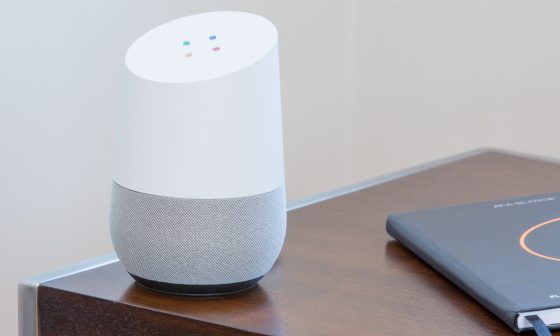By early next year, over 50% of all searches will be done via voice. There is no going back. Voice search will continue to grow and become the primary way that people will conduct their searches. Consumers will look for the best pizza restaurant in a certain city, ask which phone carriers have the latest iPhone in stock, and query the most trusted financial advisor in their area – all using voice searches. They will want to ask any question that comes to mind and expect to get a reliable response – fundamentally because it’s just a much more organic way to search for something.
Voice Search: The Past and the Future
In 2011, Google launched its initial voice search service, available only in English. Now, Google can support almost 70 languages via its Google My Assistant. Nearly 50% of households have at least one voice search device in their home and nearly 25% have more than one. Google My Assistant also has formidable competitors that include the likes of Apple’s Siri, Amazon’s Alexa and Microsoft’s Cortana. The competition has pushed the technology envelope in a fast and furious manner to enable the enviable ubiquity of voice search.
Because this evolution to voice search has moved at such an unprecedented rate, most brands have not prepared themselves with the necessary measures to handle this transformation. There is a new reality for how a brand will be found and how a brand will be chosen. Voice search optimization will be critical to ensuring brand relevance and exposure. The brands that will win are the ones that best prepare for voice search enablement to take up the majority share of all searches.
Voice Search Optimization for Your Brand
Voice search vs. traditional typed-search will produce different results. So, in simple terms, the rules for optimizing for voice search are much different from the ones in place for optimizing your site for traditional search. More importantly, and probably the most important consideration to keep in mind is that people conducting a search on devices like smart speakers will get only one top result. This is radically different from getting pages and pages of results as we have gotten accustomed to with traditional search. This one and only top result has been named “position zero,” and every brand will have to fight to secure this piece of search engine real estate for specific focus keywords. Acquiring position zero will be the primary goal for every brand and will be critical to their future success.
How Do I Optimize for Voice Search, Then?
There are three key steps that every brand must take now to win position zero. The first one is to ensure that your website has optimized schema.
Step 1: Optimizing Your Schema
Schema is a structured data code that is added to HTML markup and used by search engines to better understand your site’s content. By optimizing your schema with this structured data, it will help all the major search engines crawl and read your content efficiently. More importantly, you can better control the way you provide information about your brand and the way in which the various machine-learning crawlers interpret it. There are various tools that can help you optimize your website for schema.
Step 2: Optimizing for Position Zero
Secondly, if you want to rank at position zero in voice search results, you should focus on providing information that is formatted to be ideal featured snippets on search engines. It is likely that if the results include a featured snippet, most popular voice assistants will then look to pull its results from there. This may mean that you need to adjust your content marketing and blogging style to include a question in your blog or in the title of the blog, followed by a simple one-paragraph answer. It’s highly suggested that the paragraph answers should be also less than 50 words or less than 300 characters to improve its chances of being pulled as a featured snippet.
Step 3: Optimizing Your Page Load Speed
Lastly, page load speed is extremely critical to whether your page will appear in voice search results – and since many of those potential customers are coming in via a mobile device, mobile speed is more important than desktop for voice search optimization. Google has indicated that page load speed is used as a major factor in its algorithm to rank pages. In addition, a slow page load speed means that search engines can crawl fewer pages and will negatively affect your voice search rankings.
There is no question, the new reality is voice search. The only question is whether your brand will be ready for it.


